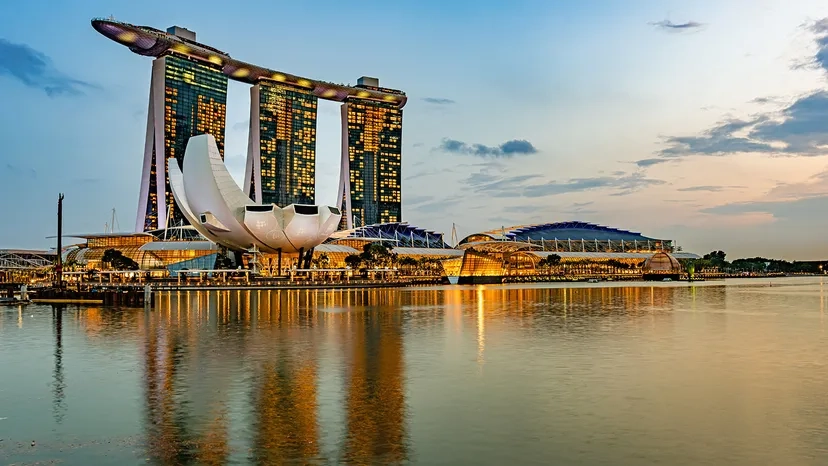 Singapore uses IoT to manage just about everything. Majonit / Shutterstock
Singapore uses IoT to manage just about everything. Majonit / Shutterstock
As urban populations grow, some cities are redefining what it means to live in the future. The most futuristic cities are more than just skylines; they're powered by renewable energy, connected through IoT technology, and built around sustainability.
Masdar City, Abu Dhabi. Marisa Martinez Tarran / Shutterstock
Masdar City is a purpose-built smart city in the UAE aiming for zero waste and zero carbon emissions.
With renewable energy sources like solar panels, electric vehicles, and energy-efficient buildings, the city minimizes energy consumption. Smart streetlights and autonomous vehicles also help improve safety and reduce traffic.
Designed by Italian architect Stefano Boeri, this proposed city in Cancun would be the worlds first Smart Forest City.
Built on renewable energy and packed with green areas, it aims to absorb 116,000 tons of CO�. It integrates green technology with IoT devices to manage waste, monitor air quality, and streamline public transport.
Songdo, South Korea. cstrike / Shutterstock
Located on reclaimed land, Songdo is a fully connected smart city where every building features cutting-edge technology.
Traffic, waste management, and even energy use are monitored in real time. The city incorporates IoT technology in nearly every aspect of urban living to improve services for residents and businesses.
The brainchild of billionaire Marc Lore, Telosa aims to become a new kind of futuristic city. Planned with input from Bjarke Ingels Group, the master plan focuses on sustainability, public places, and equitable land ownership.
The first phase includes green buildings, smart city infrastructure, and access to nature within a 15-minute walk.
Singapore. monticello / Shutterstock
Singapore is already a global leader in smart city development. The government uses IoT devices to manage public transport, energy efficiency, and urban planning. Initiatives include electric buses, solar panels, and green buildings to create a more livable city while embracing modern technology.
A proposed network of three man-made islands off the coast of Penang Island, Malaysia, BiodiverCity blends nature with tech. Strictly limited traffic, electric vehicles, and green technology are central to the project's floating cities.
Developed in part by Bjarke Ingels Group, it promises sustainable urban living powered entirely by renewable energy.
These cities represent the cutting edge of futuristic urban development, where advanced technologies, sustainable design, and data-driven decisions shape how well live in the decades to come.
We created this article in conjunction with AI technology, then made sure it was fact-checked and edited by a HowStuffWorks editor.



